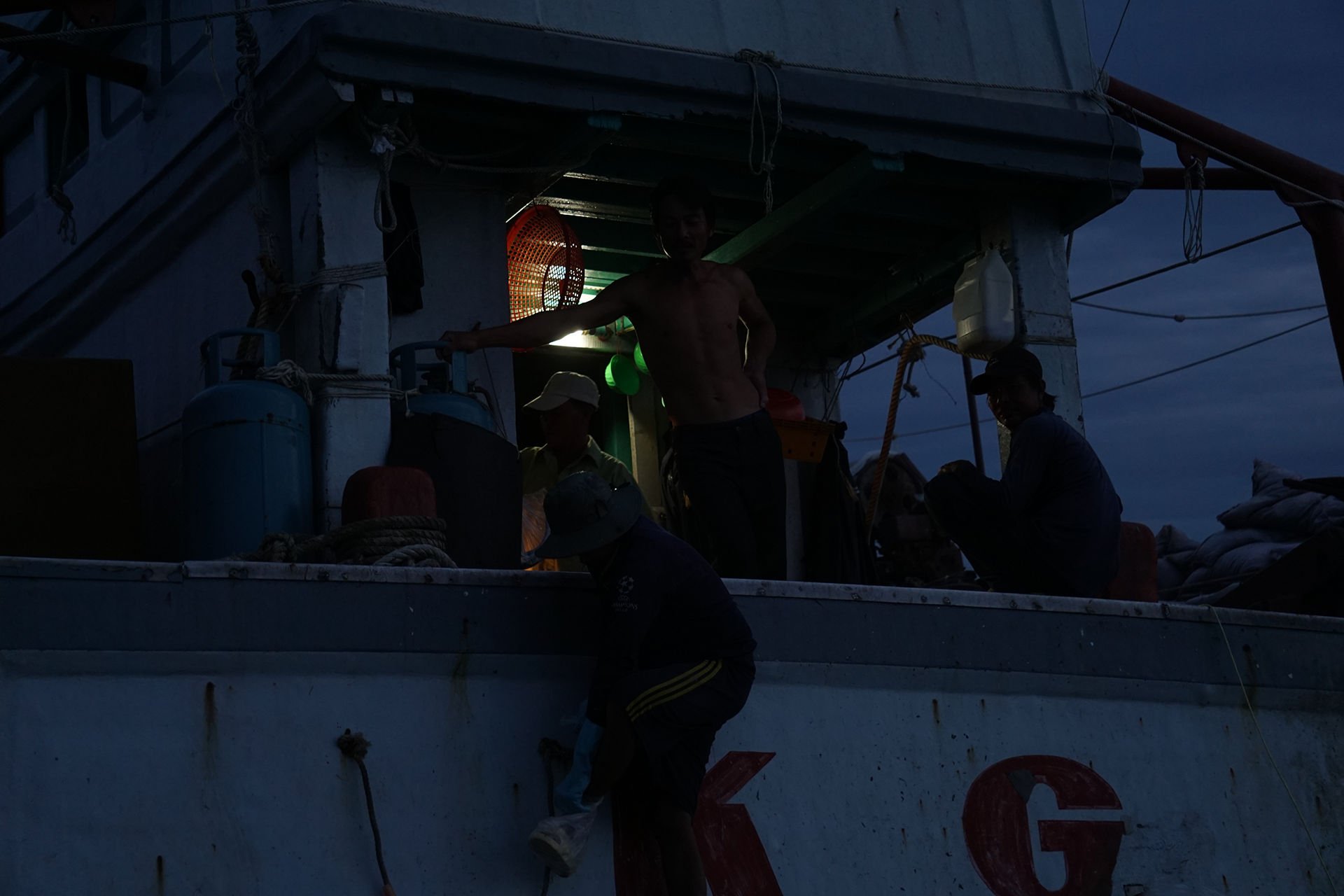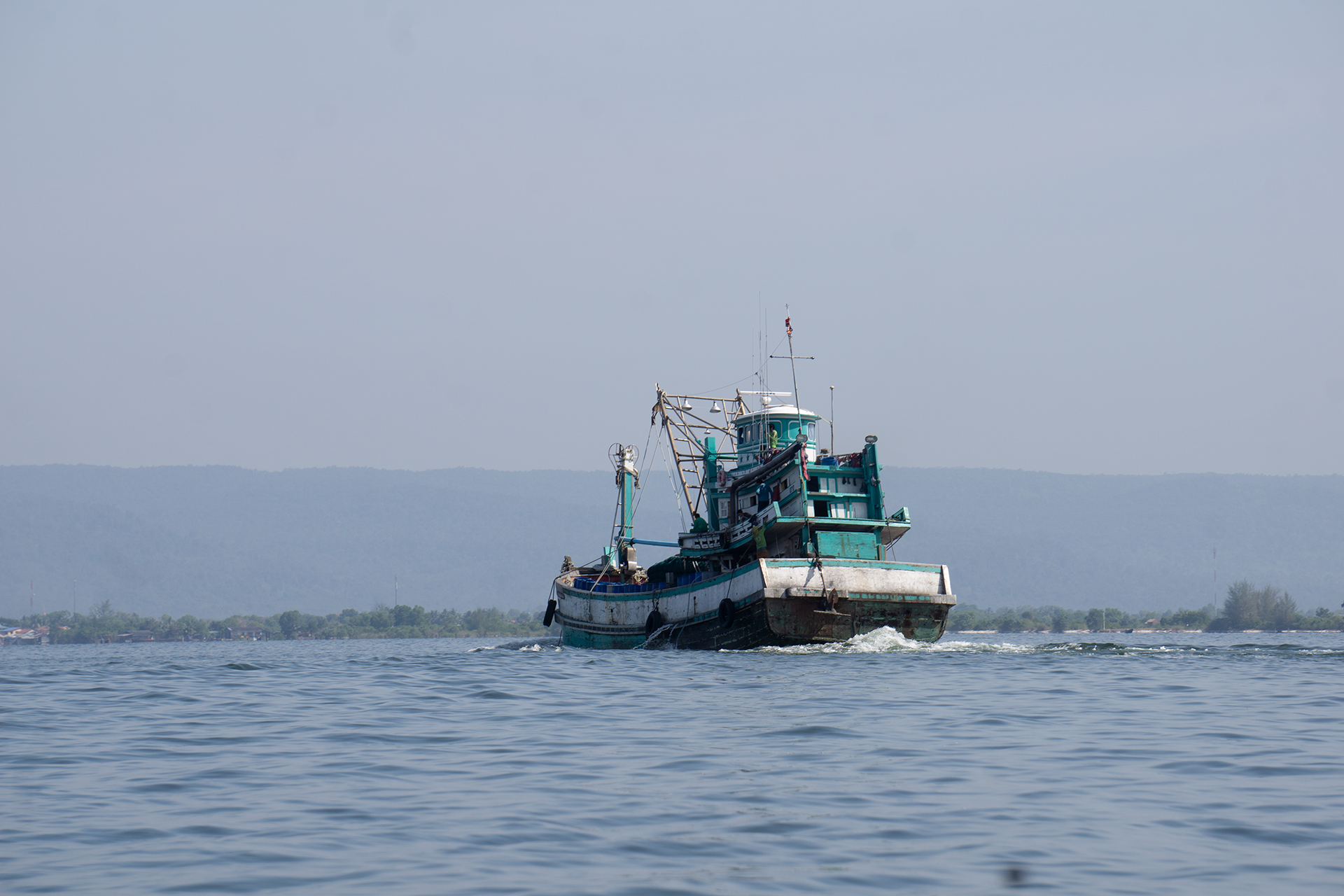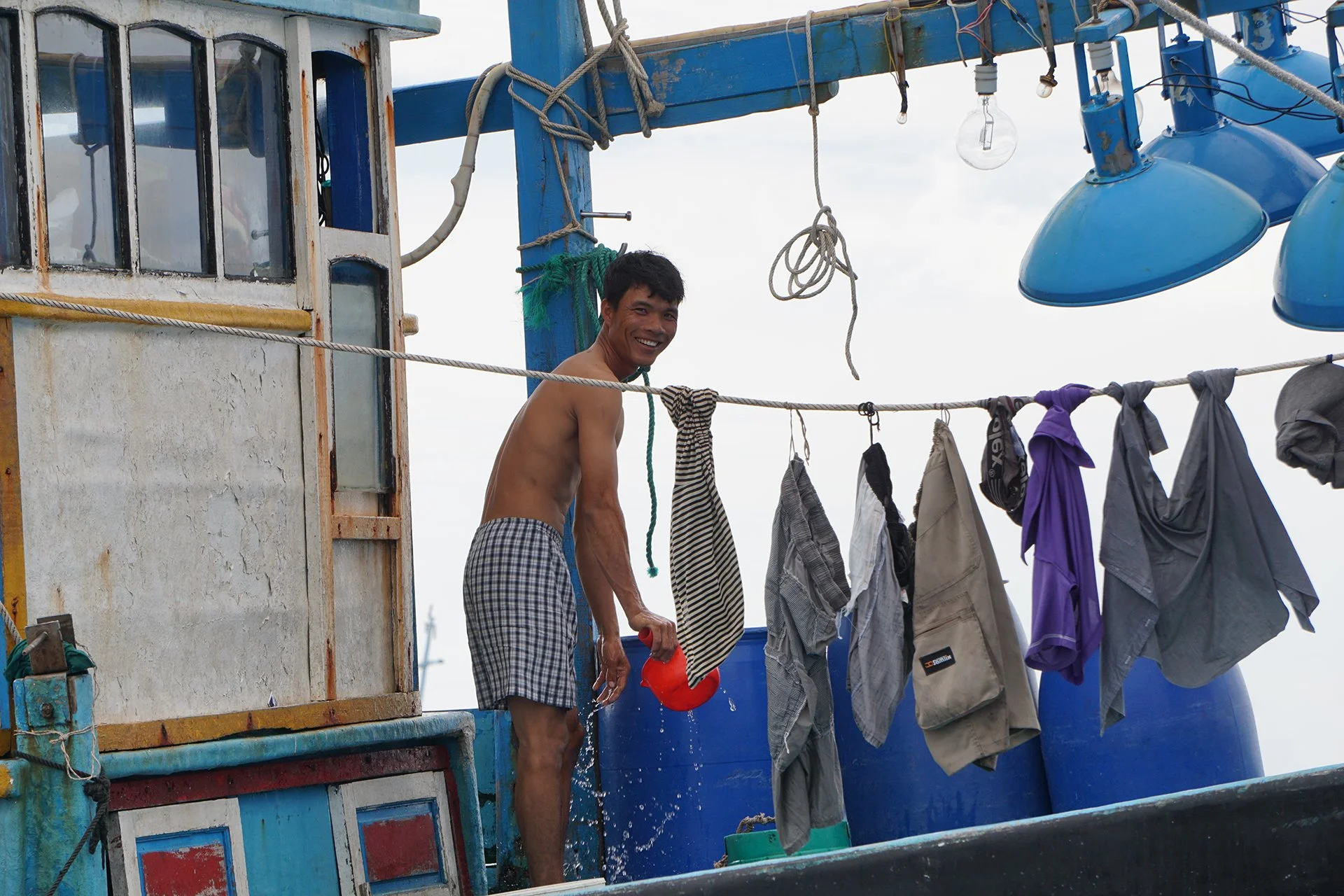Vito’s Story
Thailand

For more than a year, Vito blocked out the pain of missing precious family moments: like kissing his wife goodnight, reading books together and tucking his children into bed. Instead, he spent his nights digging through fishing nets, hauling them in and throwing them out, somewhere in the Gulf of Thailand, uncountable hours from the tiny port town where he had boarded the boat…

…the last time he had set foot on dry land.
This is a firsthand account from the survivor who wanted their story told.
The nights at sea were long and cold. More often than not, they’d bleed into the following day, the black sky turning a sleepy, hazy blue, before the sun did its searing and then made way for the darkness once more, with little rest for Vito and his crewmates along the way. Life at sea revolved around two things: the weather and the flow of the fish. A worker’s wellbeing was not even an afterthought.
Blistering winds chilled bones and rain drops hit like bullets, spat into bare, scolded skin. The endless drag of rope and nets turned raw, sodden hands into a mess of dead skin, callouses and open wounds. Memories of life on land soon began to fade. The seawater showers and the fish-only diet made Vito feel as though he no longer existed—like he had just evaporated into his salty, blue surroundings.
“I was nothing, less than a ghost,” he said, turning wet in the eyes still, years after returning from the ordeal.
But it was all worthwhile, he thought. Back home, his wife no longer had to work nights to put food on the table. They could afford to send their sons to school full time—not just randomly in between shifts on the farm. And the debt-collectors would be kept at bay, with their marauding threats to seize the family home.
“Every time I felt pain, physical or mental pain, I turned my mind to my children,” Vito said. “With an education, they would be free from the life of endless struggle. This gave me the energy to continue.”
After another underwhelming crop, Vito and three of his mates had abandoned their rice paddies in rural Cambodia and headed for Thailand, acting on the urgings of an elder from a nearby village who had sent his own children and relatives along the same path, off in search of some serious cash.
The deal seemed simple: Twelve-months’ work on a fishing boat; in return, they’d receive: $400 a month. If they agreed, an agent would chaperone recruits from their homes, across the border and to the job, handling all logistics and costs—for transport, visas, work documents, border crossings, everything. When the new recruits started work, their first months’ pay would be withheld to cover those costs. After that, Vito’s salary would be wire-transferred to his wife on the first day of each month. They only had to get on a bus and follow instructions. All sounded reasonable, he thought, and so off he went.
The work was tougher than Vito could ever have imagined. The captain was a foul and nasty man, full of abuse and refused to dirty his own hands, aside from the seemingly random slaps across the back of the head—or worse—he would dish out to the crew. But still Vito toiled, day and night, carving a line into the cabin wall to mark each sunrise, each one bringing him closer to reuniting with his wife and kids.
When the tally passed 365, Vito told himself that, as dazed days melted into one another, he could easily have made mistakes. But when it passed 400, he knew something was up. And so, the next time the boat docked in Thailand—where the crew were normally made to hide away from extortionate port authorities—he took his chances and made a run for it, escaping back across the border and to the home he had left more than 13 months prior.
“When I arrived, my heart turned black,” he said. The house was no longer his home. It had been repossessed by the bank. His wife and kids had moved in with her sister, just a few houses down the road. “When my wife saw me, it was like she saw a ghost. They thought I was dead,” he said, his heart sinking further as he realised the depths of the treachery. The entire process was a scam; he’d been sold onto that fishing boat by the so-called recruiter.
“My wife didn’t receive a single cent. Not one cent. All the sleepless nights, working through the rain storms, all the beatings, the wounds on my legs and hands, all for nothing,” he said. “I will never forgive. I can never forget. No matter how much time passes, I can’t clear this horror from my mind.”
While you’re here…
Be Slavery Free is a charitable coalition working to end modern slavery in all its forms. We work with businesses to ensure supply chains and products are free from slavery. We work with governments to close legal loopholes and enforce anti-slavery laws. And we work with everyday consumers to help you make informed decisions at the checkout. We do all of this with the support of a small number of donors. Could you become a contributor and help us create a world free from slavery? Please donate today!





